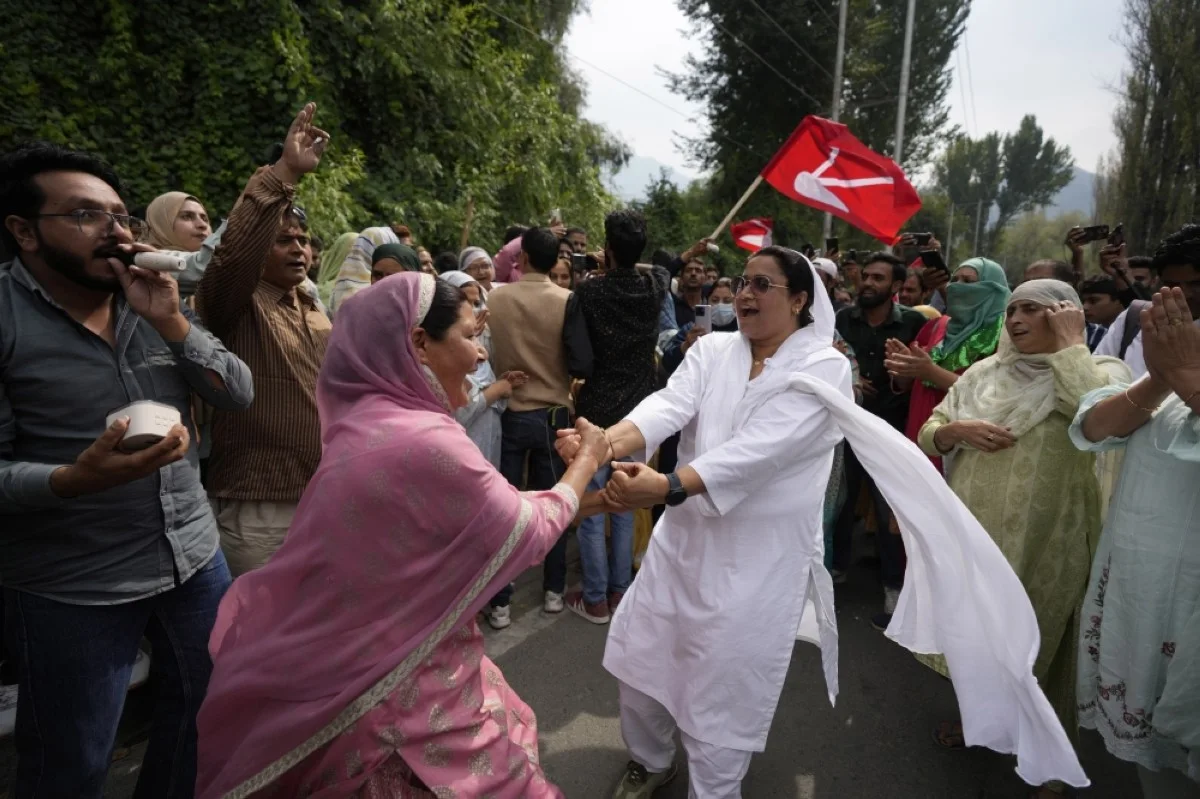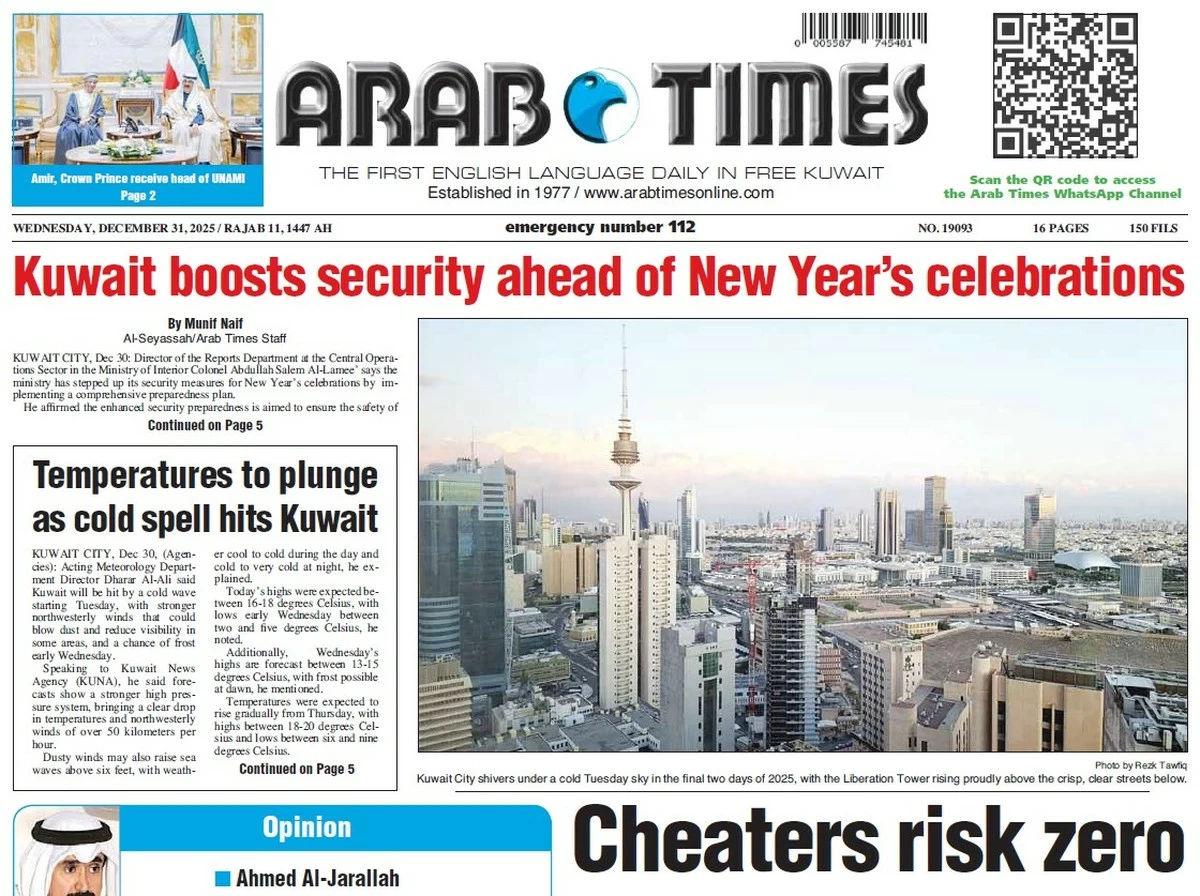16/10/2024
16/10/2024

SRINAGAR, India, Oct 16, (AP): Leaders of Kashmir’s biggest political party were sworn into office Wednesday to run a largely powerless government after the first election since India stripped the disputed region of its special status five years ago. National Conference leader Omar Abdullah will be the region’s chief minister after his party won the most seats in the three-phased election.
It has support from India's main opposition Congress party, although Congress decided not to be a part of the new government. The vote was Kashmir's first in a decade and the first since Prime Minister Narendra Modi’s Hindu nationalist government scrapped the Muslim-majority region’s long-held semi-autonomy in 2019.
The NC staunchly opposed the move, and its victory is seen as a referendum against the Modi government's changes. Kashmir's Lt. Gov. Manoj Sinha, New Delhi’s top administrator in Kashmir, administered the oaths of office to Abdullah and the five members of his council of ministers in a ceremony under tight security at a lakeside venue in the region’s main city of Srinagar.
Some of India’s top opposition leaders, including Rahul Gandhi of the Congress party, attended. However, there will be a limited transfer of power from New Delhi to the local government as Kashmir will remain a "union territory” - directly controlled by the federal government - with India’s Parliament as its main legislator. Kashmir’s statehood would have to be restored for the new government to have powers similar to other states of India.
But it will not have the special powers it enjoyed before the 2019 changes. India and Pakistan each administer a part of Kashmir, but both claim the territory in its entirety. The nuclear-armed rivals have fought two of their three wars over the territory since they gained independence from British colonial rule in 1947. Kashmir’s last assembly election was held in 2014, after which the Modi’s Bharatiya Janata Party, or BJP, for the first time ruled in a coalition with the local Peoples Democratic Party.
But the government collapsed in 2018 after the BJP withdrew from the coalition and New Delhi took the region under its direct control. A year later, in an unprecedented move, the federal government downgraded and divided the former state into two centrally governed union territories, Ladakh and Jammu-Kashmir.


